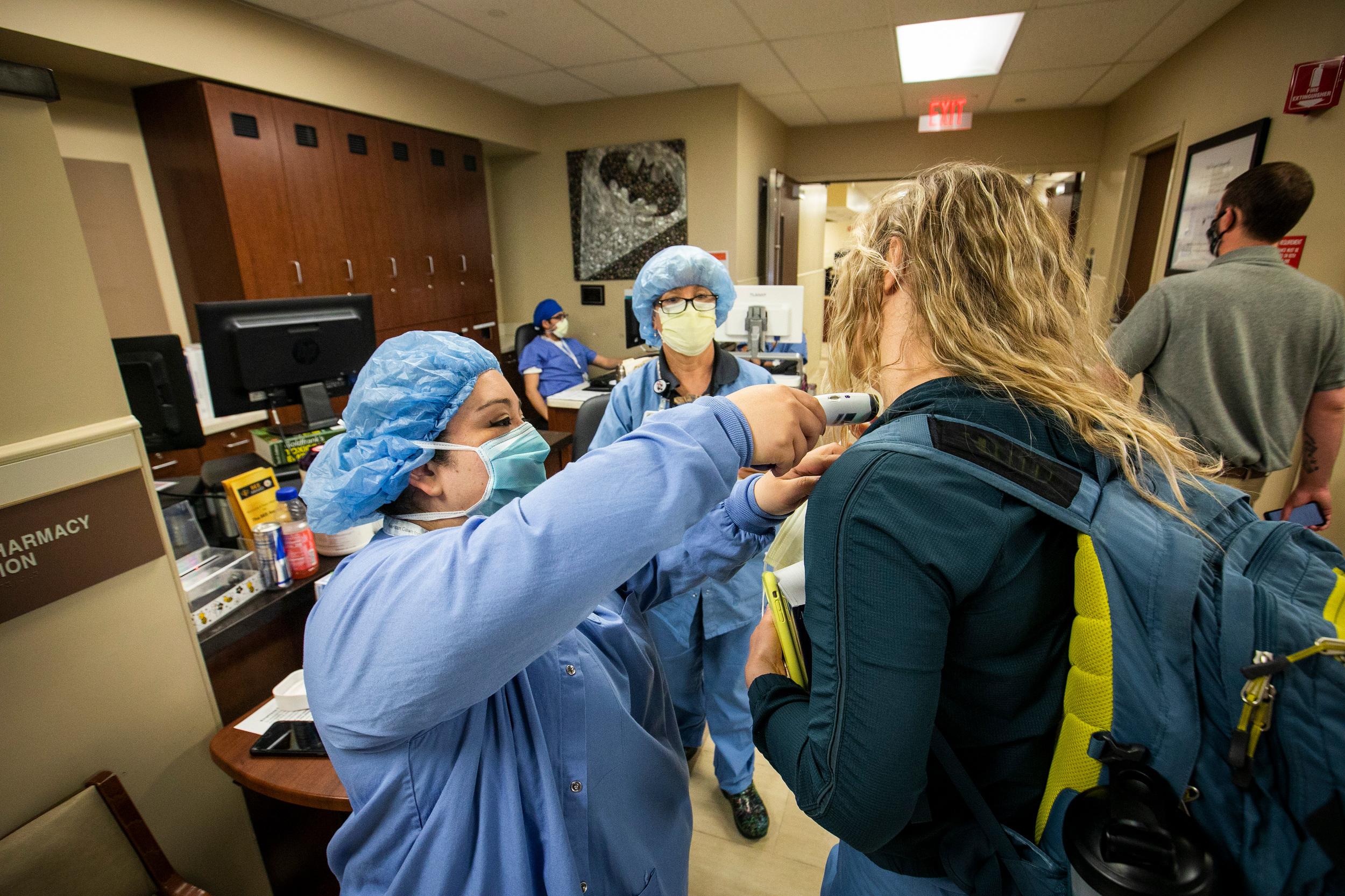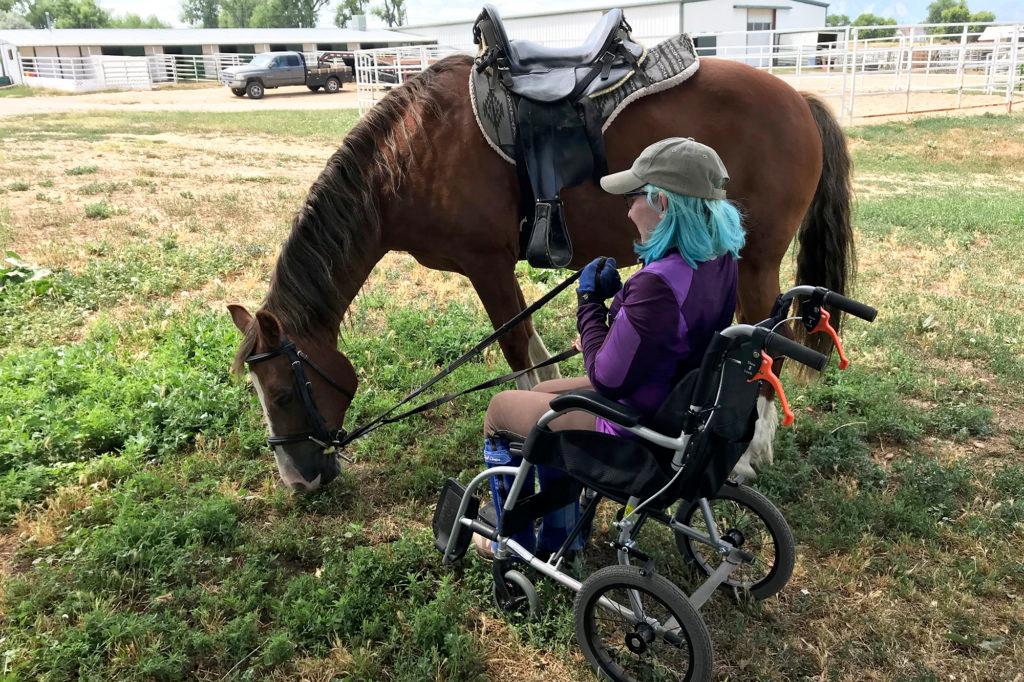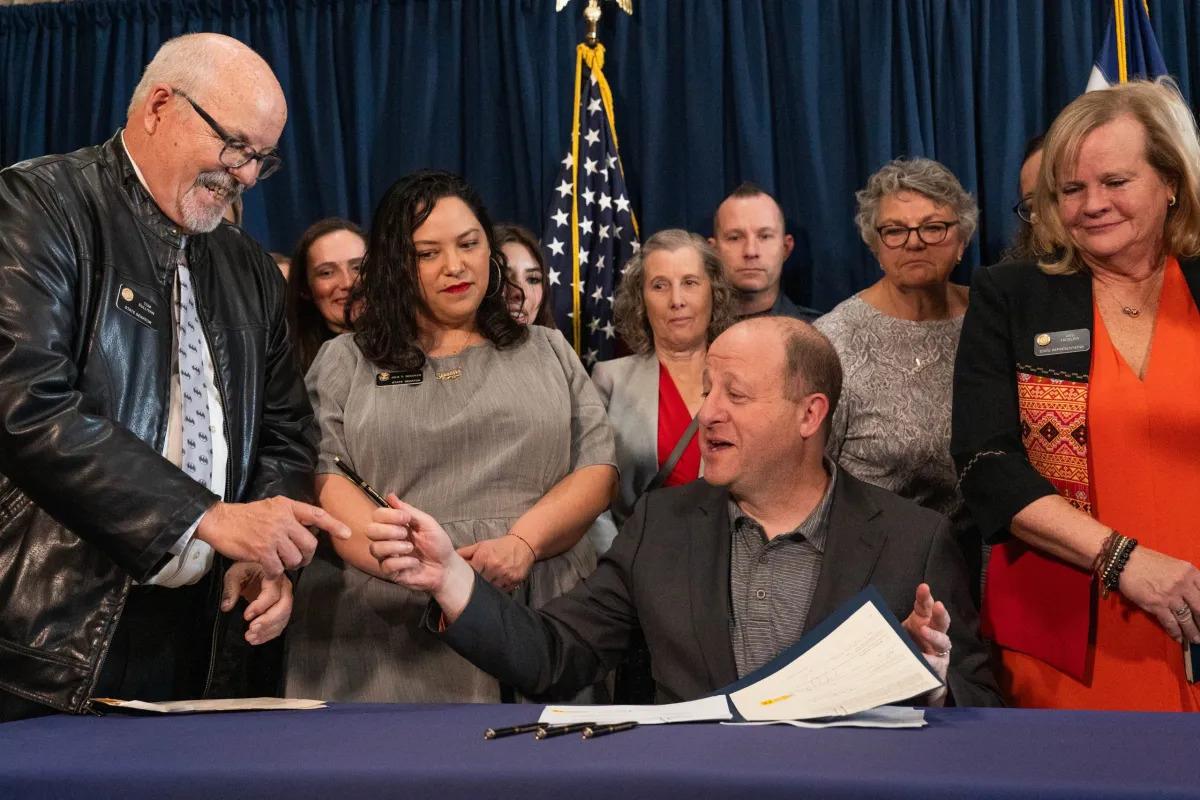
Colorado health leaders and medical providers are worried how the state's limited supply of protective gear will hold up as it moves to allow postponed medical care.
Last month, the governor ordered the postponement or cancellation of all non-essential medical services and elective surgeries and procedures.
The goal was to prevent the spread of COVID-19 -- and to preserve personal protective equipment (PPE), which has been in short supply in Colorado and nationally.
Now the state is looking to allow some of those procedures. On Monday, voluntary or elective medical, dental, and veterinary surgeries and procedures may resume if facilities are following required safety protocols.
Under an executive order from Gov. Jared Polis Sunday, facilities performing these procedures must develop a plan to reduce or stop voluntary or elective surgeries and procedures “if there is a surge” of COVID-19 infections in the county or municipality in which they are located. The state’s health department will determine the conditions that constitute a surge.
Dr. David Markenson, from the Colorado Medical Society, urged a staged approach that takes care of more serious needs first, to save PPE, like masks, gowns and gloves.
He said one challenge is that hospitals, long-term care facilities and primary care practices all have a need for the same gear, and it’s in high demand.
"Private practices are having a hard time obtaining PPE," he said. "Obviously a staged return to procedures is appropriate, we do have to think about resources."
Some medical providers who joined a call Sunday of the Governor's Expert Emergency Epidemic Response Committee (GEEERC) worry moving too fast could lead to a surge in cases that could overwhelm hospitals.
“We are praying it won't be a surge. I could see us having variable capacity across the entire system, which means some systems who have chosen to be more judicious will end up potentially having to take on more of this demand (for care),” said Dr. Jandel Allen-Davis, president and CEO of Craig Hospital.
She urged state officials to be intentional about the distribution of PPE, so long term care facilities, which account for a high percentage of the state’s cases and deaths, have enough. She said hospitals and providers will need to be “very careful” as they get back to doing the surgeries and procedures considered now-urgent.
A spokeswoman for Colorado’s hospitals says she thinks the time is right for the transition to a bit less restrictive posture.
“We do think hospitals can return to non-emergent surgeries safely,” said Julie Lonborg, a senior vice president with the Colorado Hospital Association. “They will do so in a careful, slow and methodical way with a very careful watch on their community, COVID and their three S’s (space, supplies and staff).”
She said each hospital is unique and so would be the return to an expanded list of procedures. Lonborg also said monitoring and frequent communication between hospitals and with the state will be critical in the coming weeks.
"I think we're excited to broaden the time-sensitive surgeries that we're doing. The term elective surgery is such a broad one, it's not very useful actually. So there are a lot of elective cases that are essential and you have to do them," said Steve Cobb, Denver Metro Group Vice President and Physician Executive at Centura Health.
"You know, a guy who has a lung mass who needs a bronchoscopy or a biopsy to know what that is, that's an elective procedure. Gosh, that's something you don't want to delay very long."
Medical procedures, including those considered “non-essential,” can account for a large portion of revenue for hospitals, surgery centers and clinics. Many have reported the COVID-19 pandemic is expected to put tremendous financial strain on the health system and individual facilities.
Another concern is shortages of medications, especially sedatives used to calm patients, often during surgeries and other procedures.
For some patients, a return to normal medical care can’t come soon enough. “I had a procedure postponed, but I haven’t been able to get through to scheduling,” said 29-year-old Andi Rudman of Boulder. Rudman has a congenital disorder called Klippel Feil Syndrome, that causes severe pain. She said she left a few messages but hasn’t heard back yet and is hoping to talk to her doctor during a telehealth appointment next week.

Ideally, she’d like to see her doctor tomorrow. She was scheduled to get some steroid injections in her joints, “but at this point I’m not sure that will be enough.”
“My health has been pretty bad and my last physical therapist who I could still get in with is getting surgery of her own, so chances are it’s only going to get worse,” she said. “My hope is when I talk to the doc I can make it clear how badly I’m doing and maybe get triaged up the list a bit.”
She said she hoped to get in to see a doctor some time this month.
Lonborg said patients are also ending up in emergency rooms because they waited to seek care. “Hospital emergency departments are a safe place for patients who need to seek care,” she said. “Delaying care during a heart attack or stroke can mean the patient can’t make a full recovery.”
She said some patients who waited then ended up needing surgery who otherwise may not have. “We cannot say this enough right now. It’s critical that people know, it’s safe to seek emergency room care when you need it,” she said.









